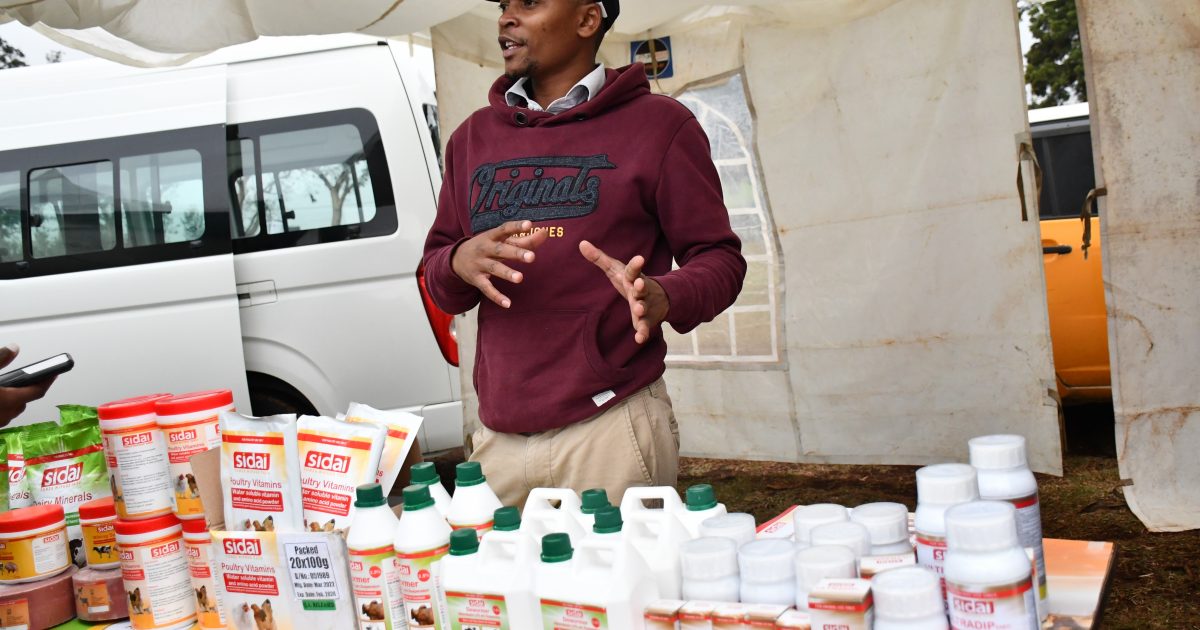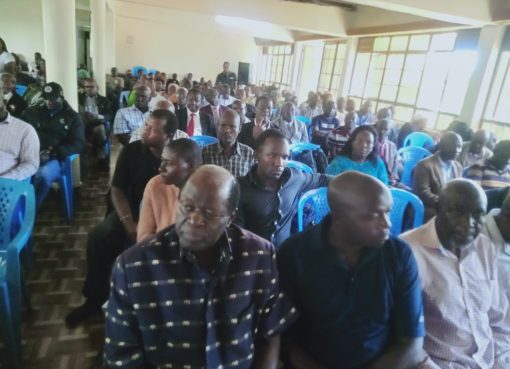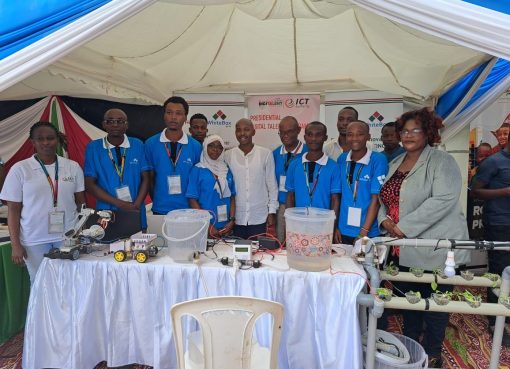Farmers in Kiambu County have been urged to learn new techniques of improving their dairy farming.
The farmers who were participating in a two day Expo on sustainable poultry and dairy ventures at Ndumberi stadium to showcase their products, were able to learn from various players and stakeholders on different ways of mechanization.
Dairy farming is the leading form of agribusiness for the people of Kiambu as the County has been the top producer of milk in the country for the last five years.
Key stakeholders in the industry explored different dairy farming areas within different lines of specialization and showcased simple machines and customization that can be used by small scale dairy farmers in making their work easier as well as sophisticated ones that can be embraced by the large scale farmers.
From food production, treatment to animal genetics, farmers at the expo learnt on ways of improving dairy breeds suitable for Kenyan environment.
Dr Geoffrey Wamae from Atlantis Life Science Ltd advised farmers to embrace new methods of artificial insemination as it is affordable, saves time and a much safer and sure way compared to the old methods of service.
“I want to educate the farmers how to choose different breeds of different characteristics in cows. I personally deal with genetics in animals and I advise the farmers on how to ensure that they have the right breeds,” he told KNA.
With technological advancement, Dr Wamae explained how they use AI using a visual gun which contains a camera and are able to observe the animal, trace and deposit the semen using it and this increases chances of conception.
He added that with the rise of new technology, Insemination Guns are easy to use and very effective and thus encouraged AI technicians and Veterinarians to use them.
Dr Wamae further advised farmers in the dairy industry to embrace up to date catalogs in choosing the best dairy breeds with good characteristics.
Densley Holdings Kenya ltd displayed different machines that would resonate with all dairy farmers from simple milking machines, automated water troughs, milk ATMs to storage cans.
George Muriuki from the firm highlighted the advantages of milking machines to farmers in terms of labour ease, saying the availability of the machines and also affordable cost can assist farmers not only in the ease of using the machines but for prevention of milk and udder contamination thus reducing diseases such as mastitis.
Debunking the milking machines myth to farmers, Muriuki said, “This machine has a gauge, such that the pressure is set in a way it cannot hurt the cow. Most of the farmers fear that the machine might suck the animal’s blood. Since it may be a foreign object, the cow tends to hold back or hide the milk before it gets used to the machine, but eventually adapts.”
Patrick Mwangi, another expert from the Densely Holding firm said they also have a simple machine used as a milk and cream separator that can benefit every farmer.
“Immediately after milking, you can use the cream separator as long as the milk retains temperatures of about 25-30 degrees. Pour your milk in, turn the separator on and it will start rotating, such that you will end up with milk and cream from which you can make butter, cheese or ghee,” he explained.
Mwangi added that the small machine is suited for small scale farmers hence the farmer will benefit a lot.
“Butter rakes in good money so the farmer will earn both from milk and the butter,” he said.
All these and a culmination of such interventions will redefine agriculture for the people of Kiambu especially in the dairy sector. The expo was clouded with an objective to help anyone who was willing to learn something new or an improvement of what they had.
Judie Wambui from Muharata Fabricators, a company that fabricates machines for farm feeds said they have a silage chopper, a multipurpose machine that is used in milling and chopping of maize stalks either wet or dry and also milling of cobs that farmers rearing cows, pigs or chicken can use.
She added that they also have a pelletizer machine that allows farmers to convert feed ingredients such as grass, rice husk, soybean meal, and many more into small dry pellets.
“While using this machine, the farmers only buy the grains, mix them to make pellets and one advantage of using pelletizer is that the animals do not waste feed as compared to giving them grains,” Wambui said.
Sidai Ltd another company showcased new interventions in the livestock pest control especially ticks.
Alex Muriuki from Sidai explained that they have introduced two molecules in Ultra dip a ready to use post-milking teat disinfectant, with lactic acid and acid salicylates to be able to address the pest situation considering the biggest challenge farmers have been facing is that pests have gained much resistance to the chemicals.
Kiambu County is currently leading as the highest in milk production countrywide with a total of 430 million litres produced annually. The mean production per cow every day in the country stands at 10.1 litres and Kiambu has been registering a production of 12.6 litres per cow, the highest in the country.
As a way of increasing milk production in Kiambu, former Governor, James Nyoro through the Government’s National Agricultural and Rural inclusive growth project (NARIGIP) last year had procured and installed a 1000 liters of milk per hour milk pasteurizer, a 1000 liters per high pressure homogenizer, a chiller, hot water boiler and an air compressor, thus uplifting the dairy farmers lives financially.
By Fridah Chomba and Victor Muchiri





